Author Archives: Ajitesh Kumar
Huggingface Transformers Hello World: Python Example
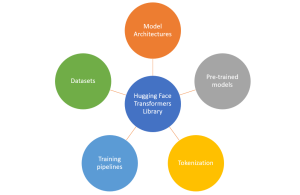
Pre-trained models have revolutionized the field of natural language processing (NLP), enabling the development of advanced language understanding and generation systems. Hugging Face, a prominent organization in the NLP community, provides the “transformers” library—a powerful toolkit for working with pre-trained models. In this blog post, we’ll explore a “Hello World” example using Hugging Face’s Python library, uncovering the capabilities of pre-trained models in NLP tasks. With Hugging Face’s transformers library, we can leverage the state-of-the-art machine learning models, tokenization tools, and training pipelines for different NLP use cases. We’ll discuss the importance of pre-trained models in NLP, provide an overview of Hugging Face’s offerings, and guide you through an example …
Prompt Engineering: Core Principles, Examples
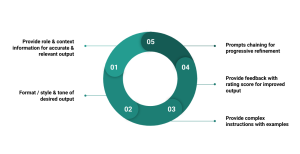
Ever chatted with Siri or Alexa and wondered how they come up with their answers? Or how do the latest AI tools seem to “know” just what you’re looking for? That’s all thanks to something called “prompt engineering“. In this blog, we’ll learn the key concepts of prompts engineering. We’ll talk about what prompt engineering is, its core guiding principles, and why it’s a must-know in today’s techy world. Let’s get started! What is Prompt Engineering? Prompt engineering is the art and science of designing, refining and optimizing prompts to guide the behavior of generative AI models like those built on the GPT architecture. While the underlying AI model might …
Exploring Amazon Science Publications: A Quick Guide

In the ever-evolving world of technology and research, staying updated with the latest advancements is crucial. Amazon Science Publications has emerged as a treasure trove for those hungry for knowledge, offering a plethora of articles that span a wide range of topics. Whether you’re an AI / ML researcher, a student, or just a curious mind, this platform has something for everyone. Let’s delve into the vast ocean of articles available on Amazon Science Publications. Research Areas: Tags: Conferences: Journals: Date: Whether you’re looking for the latest articles from 2023 or want to revisit the gems from 2015, Amazon Science Publications has got you covered. With articles spanning from 2015 …
Greedy Search vs Beam Search Decoding: Concepts, Examples
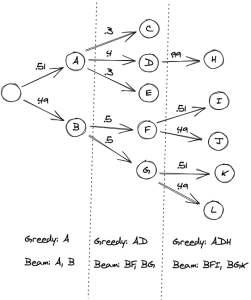
Have you ever wondered how machine learning models transform their intricate calculations into clear, human-readable language? Or how your smartphone knows exactly what you’re going to type next before you even start typing? These everyday marvels are powered by a critical component of natural language processing (NLP) known as ‘decoding methods‘. But how do these methods work, and why are there different types? In the vast field of machine learning, a primary challenge in natural language processing tasks is converting a model’s computational output into an understandable and coherent text. Whether it’s autocompleting your sentences, translating text from one language to another, or generating a news article, these tasks involve …
NPTEL’s Machine Learning & Data Science Online Courses (Jul-Nov 2023)

In the rapidly evolving domains of Machine Learning, Data Science, and Artificial Intelligence, the quest for quality education and courses has become paramount. For those familiar with the educational landscape of India, the Indian Institutes of Technology (IITs) stand out as beacons of excellence. Established by the government of India, the IITs are autonomous public technical universities that are recognized globally for their outstanding curriculum, research, and innovation. Every year, thousands of students vie for a coveted spot in these institutions, and their alumni have made significant contributions to technology and research worldwide. NPTEL (National Programme on Technology Enhanced Learning), in collaboration with these premier IITs, has curated a range …
Vanishing Gradient Problem in Deep Learning: Examples
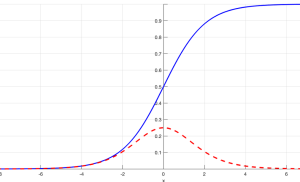
Ever found yourself wondering why your deep learning (deep neural network) model is simply refusing to learn? Or struggled to comprehend why your deep neural network isn’t reaching the accuracy you expected? The culprit behind these issues might very well be the infamous vanishing gradient problem, a common hurdle in the field of deep learning. Understanding and mitigating the vanishing gradient problem is a must-have skill in any data scientist‘s arsenal. This is due to the profound impact it can have on the training and performance of deep neural networks. In this blog post, we will delve into the heart of this issue, learning the calculus behind neural networks and …
GPT Models In-context Learning: Examples
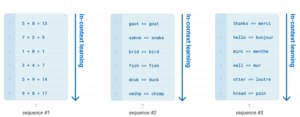
Have you ever wondered how AI models like OpenAI GPT-3 (Generative Pretrained Transformers-3) can generate impressively human-like text? Enter the realm of in-context learning that gives GPT-3 its conversational abilities and makes it extraordinary. In this blog, we’re going to learn the concepts of in-context learning, its different forms, and how GPT-3 uses it to revolutionize the way we interact with AI. What’s In-context Learning? In-context learning is at the heart of these large language models (LLMs), enabling GPT models to understand/comprehend and create text that closely resembles human speech, based on the instructions and examples they’re provided. As the model learns about the context based on the examples provided …
DCGAN Architecture Concepts, Real-world Examples

Have you ever wondered how AI can create lifelike images that are virtually indistinguishable from reality? Well, there is a neural network architecture, Deep Convolutional Generative Adversarial Network (DCGAN) that has revolutionized image generation, from medical imaging to video game design. DCGAN’s ability to create high-resolution, visually stunning images has brought it into great usage across numerous real-world applications. From enhancing data augmentation in medical imaging to inspiring artists with novel artworks, DCGAN‘s impact transcends traditional machine learning boundaries. In this blog, we will delve into the fundamental concepts behind the DCGAN architecture, exploring its key components and the ingenious interplay between its generator and discriminator networks. Together, these components …
Autoregressive (AR) Models Python Examples: Time-series Forecasting
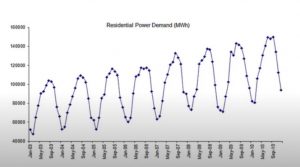
Autoregressive (AR) models, which are used for text generation tasks and time series forecasting, can be employed to predict future values predicated on previous observations. This blog post will provide the concepts of autoregressive (AR) models with Python code examples to demonstrate how you can implement an AR model for time-series forecasting. Note that time-series forecasting is one of the important areas of data science/machine learning. In subsequent blogs, we will take up the topic of how autoregressive models can be used as generative model for text generation tasks. For beginners, time-series forecasting is the process of using a model to predict future values based on previously observed values. Time-series data …
GAN vs VAE: Differences, Similarities, Examples
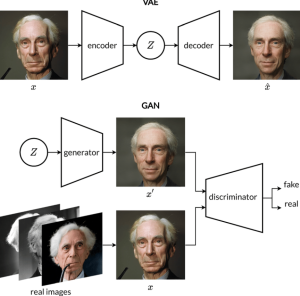
Are you curious about how machines not only learn from data but actually create it? Have you ever found yourself puzzled while trying to choose between Generative Adversarial Networks (GANs) and Variational Autoencoders (VAEs) for your project? Or, even trying to understand when to use GANs or VAEs? Well, you’re not alone! In this blog post, we’re going to learn about two key technologies GANs vs VAEs in the generative modeling, comparing their strengths, weaknesses, and everything in between. We will dive into real-life scenarios, showing when you might want to pull out GANs to generate high-quality, realistic images, and when you’d prefer the control that VAEs provide over the …
Mean Average Precision (MAP) for Information Retrieval Systems
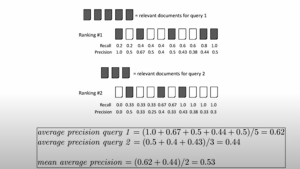
Information retrieval systems including the ones related to semantic search aim to fetch the most relevant documents from a collection based on a user query. To measure the performance of these systems, various evaluation metrics such as Mean Average Precision (MAP), and Normalized Discounted Cumulative Gain (nDCG) are used. Mean Average Precision (MAP) is a popular metrics that quantifies the quality of ranked retrieval results. In this blog, we will look into the intricacies of MAP, its application in semantic search and information retrieval, and we’ll walk through a simple Python example to calculate MAP. What is Mean Average Precision (MAP) Method? Whether we’re talking about classic information retrieval or …
Generative Adversarial Network (GAN): Concepts, Examples

In this post, you will learn concepts & examples of generative adversarial network (GAN). The idea is to put together key concepts & some of the interesting examples from across the industry to get a perspective on what problems can be solved using GAN. As a data scientist or machine learning engineer, it would be imperative upon us to understand the GAN concepts in a great manner to apply the same to solve real-world problems. This is where GAN network examples will prove to be helpful. What is Generative Adversarial Network (GAN)? We will try and understand the concepts of GAN with the help of a real-life example. Imagine that …
Analytical thinking & Reasoning: Real-life Examples
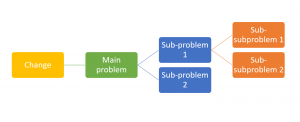
Analytical thinking and analytical reasoning are two concepts that are often misunderstood. Many people think that they are the same thing, but this is not the case. In fact, analytical thinking and analytical reasoning are two very different things, however, related. Analytical thinking is an important aspect of analytical skills. Most of us do not realize how to use analytical thinking and often end up solving the problem incorrectly or half-heartedly. As data analysts or data scientists, it would be of utmost importance to acquire this skill well. In this blog post, we will learn these concepts with the help of some real-life examples. What’s Analytical Thinking? Before we get …
Business Analytics vs Business Intelligence (BI): Differences
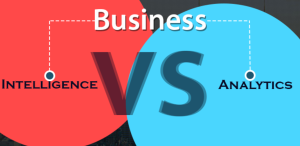
If you work in the field of data analysis, you’ve probably heard the terms “business analytics” and “business intelligence” used interchangeably. However, although they are similar, there are some important differences between the two concepts. In this blog post, we’ll take a closer look at business analytics and business intelligence and explore the key ways in which they differ. What is Business Analytics? Business analytics is a set of analytical methods and tools / technologies for analyzing and solving business problems by gathering and analyzing data from disparate data sources, and, understanding, discovering and communicating significant patterns in the data. In other words, it is a process or set of …
Sign Test Hypothesis: Python Examples, Concepts
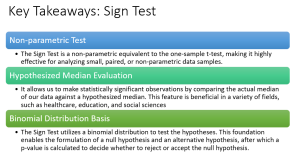
Have you ever wanted to make an informed decision, but all you have is a small amount of non-parametric data? In the realm of statistics, we have various tools that enable us to extract valuable insights from such datasets. One of these handy tools is the Sign test, a beautifully simple yet potent method for hypothesis testing. Sign test is a non-parametric test which is often seen as a cousin to the one-sample t-test, allows us to infer information about a whole population based on a small, paired sample. It is particularly useful when dealing with dichotomous data – Data that can have only two possible outcomes. In this blog …
K-Means Clustering Concepts & Python Example
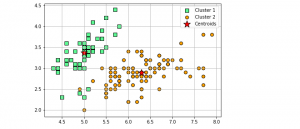
Clustering is a popular unsupervised machine learning technique used in data analysis to group similar data points together. The K-Means clustering algorithm is one of the most commonly used clustering algorithms due to its simplicity, efficiency, and effectiveness on a wide range of datasets. In K-Means clustering, the goal is to divide a given dataset into K clusters, where each data point belongs to the cluster with the nearest mean value. The algorithm works by iteratively updating the cluster centroids until convergence is achieved. In this post, you will learn about K-Means clustering concepts with the help of fitting a K-Means model using Python Sklearn KMeans clustering implementation. You will …

I found it very helpful. However the differences are not too understandable for me